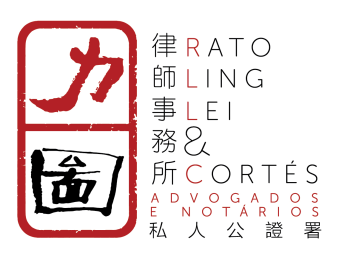Introduction
In the first half of 2016 the government revamped its regulatory measures regarding the prevention of money laundering and the financing of terrorism. This regulatory trend originated from the mandate of Administrative Regulation 7/2006. Article 2 of the regulation calls for the instructions to implement the duties and systemisation of procedures for compliance in the respective sectors to be issued by the following supervisory authorities:
- the Monetary Authority of Macau;
- the Gaming Inspection and Coordination Bureau;
- the Macau Trade and Investment Promotion Institute;
- the Finance Bureau;
- the Macau Lawyers Association;
- the Independent Commission for the Exercise of the Disciplinary Power over Solicitors;
- the Legal Affairs Bureau; and
- the Economic Services.
The Monetary Authority of Macau was among the first to comply with the regulation's call and it soon began issuing instructions and guidelines, with the others following suit. Precisely 10 years after the publication of the regulation, this regulatory trend took off once again and grew at a swift pace. The instructions came into force on the following dates:
- the Macau Trade and Investment Promotion Institute(1) – January 1 2016;
- the Legal Affairs Bureau(2) – March 1 2016;
- the Gaming Inspection and Coordination Bureau(3) – May 13 2016; and
- the Economic Services(4) – May 18 2016.
General duties
The instructions put forth by the supervisory authorities concern their particular scope of application – for example, the Gaming Inspection and Coordination Bureau instructions aim at entities that operate games of chance, lotteries, mutual bets and promoters of games of chance in casinos, while the Macau Trade and Investment Promotion Institute instructions concern commercial and auxiliary offshore services institutions. Given that the normative content of the instructions is derived directly from Administrative Regulation 7/2006,(5) similarities are abundant.
The general duties of Administrative Regulation 7/2006 are as follows:
- The duty to identify contractors, clients and patrons(6) – the duty to demand identity documents for contractors, clients or patrons and their representatives when operations, due to their nature, complexity, amounts involved, volume or non-habitual occurrence, indicate money laundering or the financing of terrorism and exceed a certain amount determined by each instruction.
- The duty to identify operations(7) – the duty to record in writing information concerning the operation, its nature, object, amount and payment methods.
- The duty to refuse to perform operations(8) – the duty to refuse an operation due to the absence of the necessary elements to identify contractors, clients, patrons and operations.
- The duty to keep certifying documents(9) – documents which identify contractors, clients, patrons and operations must be kept for five years.
- The duty to communicate operations(10) – operations which indicate money laundering or the financing of terrorism must be communicated to the Financial Intelligence Office within two working days following the performance of such operations.
- The duty to cooperate(11) – the duty to provide assistance, disclose information and deliver documents when requested to do so by competent authorities for the prevention and suppression of money laundering and the financing of terrorism.
Each instruction sets out criteria which could indicate money laundering or financing of terrorism. In some instances, the instructions may include an enhanced client information identification procedure and other special preventive measures.
Framework
An offence against the duties set out in the instructions refers back to the penalty framework of Administrative Regulation 6/2007. Without prejudice to applicable criminal responsibilities, each offence constitutes an administrative infringement, punishable with a fine of between Pte10,000 and Pte500,000 (approximately $1,252 to $62,559) for natural persons, and between Pte100,000 and Pte5 million (approximately $12,520 to $625,583) for collective persons or entities.(12)
However, the maximum fine will be raised to double the economic benefit when an offence exceeds the sum of half of the maximum fine. This level of flexibility is conferred on the supervisory authorities in cases of abnormality and should be a significant disincentive to the offender.
With the entry into force of the instructions and the recently proposed legislation on freezing assets,(13) the government is sending a clear signal that Macau has renewed its commitment to the prevention of money laundering and the financing of terrorism in line with the Asia Pacific Group on Money Laundering, which will issue a report later in 2016.
For further information on this topic please contact Pedro Cortés or Calvin Tinlop Chui at Rato, Ling, Lei & Cortés Advogados by telephone (+853 2856 2322) or email ([email protected] or [email protected]). The Rato, Ling, Lei & Cortés Advogados website can be accessed at www.lektou.com.
Endnotes
(1) Letter Circular 01/DSO/IPIM/2015, Preventive Measures on Anti-money Laundering and Combating the Financing of Terrorism, available at www.gif.gov.mo/web1/doc/IPIM/AMLCFT%20revised%20guidelines%202015_final.pdf.
(2) Guidelines on Money Laundering and the Financing of Terrorism, available at www.gif.gov.mo/web1/doc/DSAJ/Instrucoes%20contra%20o%20Branqueamento%20de%20Capitais%20e%20o%20Financiamento%20do%20Terrorismo_20160118.pdf.
(3) Instruction 1/2016 – Instructions in respect of general procedures to be adopted with a view to prevent Money Laundering Crimes and Financing of Terrorism, available at www.gif.gov.mo/web1/doc/DICJ/2016-01_InstrucaoBranqTerror.pdf.
(4) Notice 1/2016, see www.gif.gov.mo/web1/doc/DSE/aviso2016-01p.pdf.
(5) Administrative Regulation 7/2006 – Preventive measures for the crimes of money laundering and financing of terrorism, available at www.gif.gov.mo/web1/doc/gif/rega-7-2006.pdf.
(13) For further details please see "Freezing assets".
This article was first published by the International Law Office, a premium online legal update service for major companies and law firms worldwide. Register for a free subscription.




